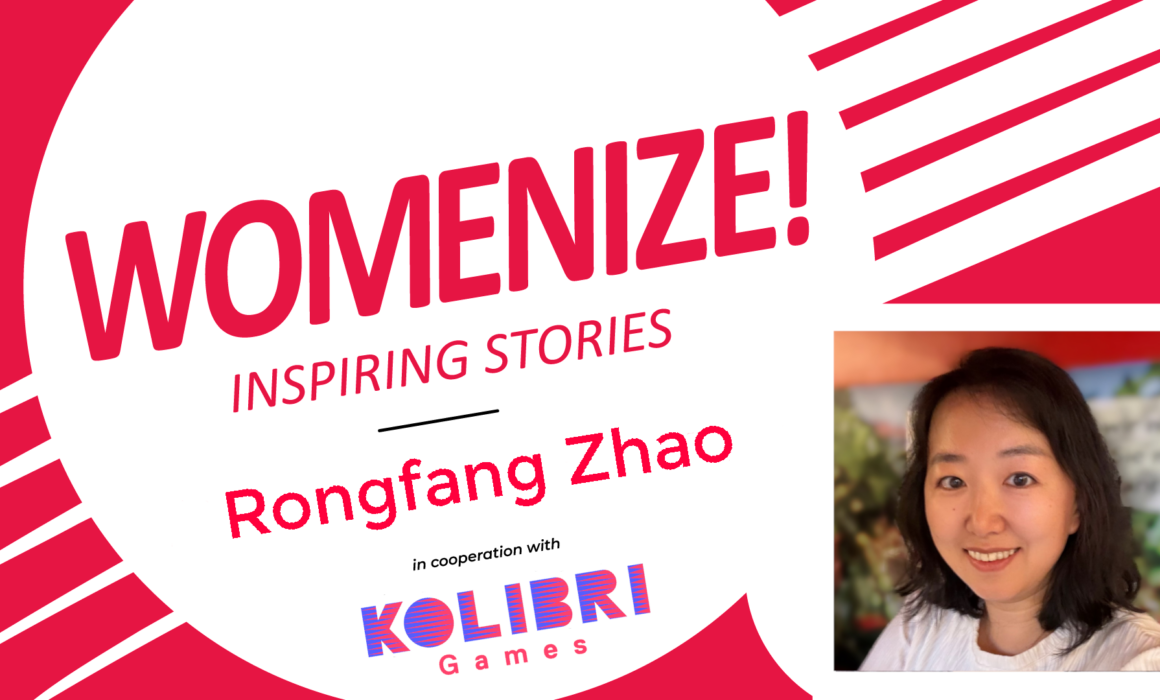Rongfang Zhao – Womenize! – Inspiring Stories
Womenize! – Inspiring Stories is our weekly series featuring inspirational individuals from games and tech. For this edition, we talked to Rongfang Zhao, Lead Game Designer at Kolibri Games. She speaks about balancing her role as Lead Game Designer with her personal life, the importance of cultural diversity in game design, and key skills like collaboration, creativity, and self-reflection for aspiring game designers. Read more about Rongfang here:
Hi Rongfang! Can you describe what a typical day looks like for you as Lead Game Designer at Kolibri Games, especially as you navigate your return from maternity leave and balance the demands of leadership with your personal commitments?
Usually I start my work at 7 a.m. and have 2 hours of precious focus time before daily meetings. I use this time to do my own design tasks or think about next topics on the roadmap.
Before lunch, most of the time I’m in meetings, checking release status and current sprint progress, reviewing my team’s work, giving them directions or feedback, and having 1 on 1s.
After lunch break, I may need to support other departments, have workshops with other designers for big tasks, or test new features.
At 4pm, I finish work as Lead Game Designer and start my other job … parent! Finding a good work-life balance has been very manageable for me at Kolibri Games: I can work from home most of the time, which spares time from commuting. Additionally, my colleagues are very accommodating and understanding of why I need to leave work early. Finally, my manager is a great help with answering urgent questions when I am already out for the day.
With your extensive experience in creating and optimizing games for both global and specific markets, what are the key elements you focus on to ensure a game’s success across different cultural contexts?
All players want the same thing, a fun game, but the definition of fun is highly subjective, especially in different cultural contexts, so I believe diversity in the team is very important. At Kolibri Games, we have colleagues from 41 countries, so our daily interactions involve cultural exchanges. This ensures that our games cover as many cultural contexts as possible.At the practical level, in addition to an excellent localization team, close cooperation with the community management team is also a key. Communicating with them in the early stages of game design can largely avoid problems. And if they notice something in the community, they will provide feedback to the design team promptly.
As someone who has led projects from pitch to live across multiple companies, what key skills and qualities do you believe are essential for aspiring game designers to develop in order to succeed in the industry?
I think the most important one is collaboration. In most game projects, you need to work with many people; it’s not enough to just have an idea, you need to convince others to buy into your idea and work together to make it in the game.
Creativity is almost as important as collaboration. It’s not just about the creativity of the game design, but also about not limiting yourself to the usual ideas when solving problems.Last but not least, learning and reflection. Not just learning new techniques or learning from other games, but also learning from yourself by constantly reflecting on what you’ve done well and where there is room for improvement. Try asking yourself, could you have done something differently?
Thanks for this interview, Rongfang!
Rongfang’s links: LinkedIn
Womenize! – Inspiring Stories Feature by Madeleine Egger

